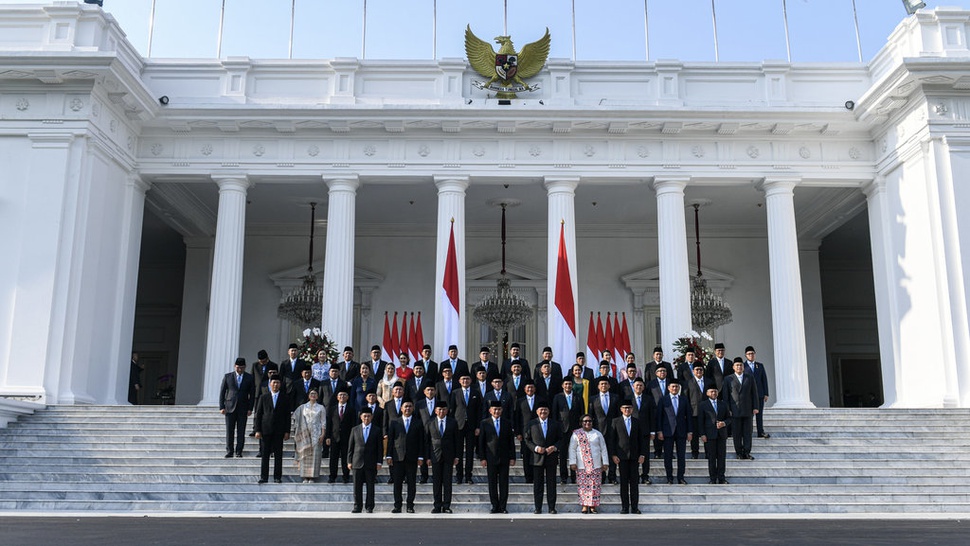In the run-up to the 2019 general elections in Indonesia, political parties recognized the growing importance of addressing women’s issues, both as a moral imperative and as a means to garner electoral support. Candidates across leading parties, including those with significant parliamentary influence, made explicit promises to prioritize gender equality, combat violence against women, and promote women’s economic empowerment. These pledges reflected an awareness of pressing societal challenges and a need to position themselves as advocates for inclusivity and progress. However, whilst these commitments raised expectations amongst voters and civil society, their realization during the 2019-2024 parliamentary term fell short of the rhetoric.
Keywords : Women, Gender Issue, Politics
Campaign promises play a vital role in democratic elections, providing voters with insight into the values and intentions of political candidates. During the 2019 elections in Indonesia, women’s issues became a central focus for many political party candidates, indicating an increasing awareness of the need for policies that address gender inequality. Candidates made public pledges to improve gender equality, address violence against women, enhance maternal health services, and support women’s economic empowerment. These commitments were made in alignment with both national goals and international gender equality frameworks, such as the United Nations’ Sustainable Development Goal 5, which aims to empower women and ensure gender equality globally.
However, the realization of these promises has been questioned. Whilst the rhetoric was strong during the campaign period, it is crucial to evaluate whether political parties truly delivered on these promises, or if these statements were mere tools to gain support from the electorate. Were these commitments translated into tangible actions, or were they lost in political discourse? This analysis aims to critically assess whether the pledges made by candidates have had a lasting impact on women’s issues in Indonesia during the 2019-2024 term. Through examining the policies implemented, legislative progress made, and real-world outcomes, it seeks to understand the gap between the promises made during the elections and the outcomes achieved in addressing women’s concerns in the political and social spheres.
Promises Made and Contextual Background
The 2019 elections in Indonesia were a pivotal moment for women’s issues in the political discourse, as many political parties recognized the importance of addressing gender equality in their platforms. For the first time in Indonesian electoral history, women’s issues were not merely a side-note but were central to many campaign promises. Political party manifestos, whilst varied, shared common commitments aimed at improving the status and well-being of women across the country.
- Gender Equality: One of the key promises made during the 2019 elections was to increase women’s representation in decision-making roles. This was seen as crucial for ensuring that policies genuinely reflect the needs and challenges women face. Political parties pledged to focus on getting more women into parliament and local government positions, with the understanding that diverse representation leads to more inclusive policymaking.
- Violence Prevention: Another prominent issue addressed by candidates was the need to combat gender-based violence, particularly domestic violence and sexual violence. The passing of the Sexual Violence Bill (RUU TPKS) was repeatedly promised as an urgent step towards creating a safer environment for women. Candidates’ promises to pass the bill were seen as a litmus test for their commitment to women’s rights, as the bill would directly address the alarming rates of violence against women in Indonesia.
- Maternal and Reproductive Health: The expansion of healthcare services for women, especially in rural and remote areas, was another priority. Maternal mortality rates and access to reproductive health services were areas where many political parties made promises to address disparities. Candidates committed to improving healthcare infrastructure, particularly for women in rural regions, where access to quality maternal health services remained limited. Additionally, candidates aimed to reduce maternal mortality by improving prenatal and postnatal care, alongside education on reproductive health.
- Economic Empowerment: Economic issues were also at the forefront, with promises to create opportunities for women entrepreneurs, improve access to finance and credit, and enhance women’s participation in the workforce. These commitments aimed to break down the barriers that prevent women from accessing equal opportunities in business and employment. Political parties emphasized the need for legal reforms and government initiatives to support women’s economic independence, such as providing training and access to capital for female entrepreneurs.
Evaluation of Actions Taken (2019-2024)
- Legislative Actions
Despite significant attention to women’s issues in the 2019 election campaigns, the legislative actions taken between 2019 and 2024 showed an uneven commitment to fulfilling the promises made.
- Gender Equality and Representation: Women’s representation in the Indonesian House of Representatives (DPR) did rise slightly to 21.8%, but this still fell short of the 30% gender quota set by the government. This small increase highlights the ongoing barriers to women’s full participation in the political process. The legislative actions to enforce or expand the gender quota were minimal, revealing a gap between the political rhetoric around gender equality and the actual legislative commitment. There were few significant proposals aimed at increasing women’s representation, and political party leaders were not aggressive in pushing for gender quotas to be met, often due to entrenched biases within the parties and broader societal resistance to women in leadership roles.
- Sexual Violence Bill (RUU TPKS): The passage of the Sexual Violence Bill (RUU TPKS) in 2022 was seen as a major victory for women’s rights in Indonesia, particularly after years of advocacy from civil society groups. However, the delays in the bill’s passage exposed a lack of urgency within political parties to prioritize issues of sexual violence and gender equality including extensive revisions and delays. Initially proposed years before its eventual passage, the bill underwent significant editing to address concerns raised by various political factions, particularly conservative groups who were hesitant to support it due to cultural and religious sensitivities around the issue of sexual violence
- Policy Implementation
Whilst campaign promises were often backed by policies aimed at improving women’s status, the actual implementation of these policies was uneven and, in many cases, ineffective.
- Maternal Health: The allocation of healthcare budgets did see marginal increases during the 2019-2024 period, but these increases were insufficient to address the systemic barriers faced by women, particularly those in rural and marginalized areas. For instance, maternal mortality rates remained high in some regions, and many women still lacked access to adequate prenatal and postnatal care. Whilst policies were put in place to improve maternal health, the infrastructure required to support these policies, such as well-trained healthcare workers, clinics in remote areas, and affordable healthcare services remained underfunded. The lack of targeted funding and resources hindered the effectiveness of these healthcare policies.
- Economic Empowerment: Several initiatives were launched to enhance women’s economic participation, such as microfinance programs and entrepreneurship training. However, the outcomes of these initiatives were often disappointing. Bureaucratic inefficiencies, a lack of proper coordination between government agencies, and insufficient follow-up meant that many of these programs failed to reach the women they were intended to support. In particular, women entrepreneurs in rural areas or informal sectors struggled to access the financial services and business support promised during the campaign. As a result, despite the introduction of new initiatives, women’s workforce participation grew only modestly, and the majority of women remained in low-wage, informal jobs, where they lacked job security and benefits.
- Societal Impact
The real-world impact of these political promises on women’s lives was mixed, reflecting the gap between policy rhetoric and tangible outcomes.
- Violence Against Women: Despite the passage of the Sexual Violence Bill and heightened awareness of gender-based violence, the number of reported cases continued to rise. The National Commission on Violence Against Women (Komnas Perempuan) reported a 20% increase in gender-based violence cases during the 2019-2024 period. This increase highlights the inadequacy of the laws and policies in addressing the root causes of violence, such as entrenched gender norms, societal attitudes towards women, and the lack of enforcement mechanisms. The absence of effective prevention strategies, insufficient support systems for survivors, and underreporting due to fear of stigma and retribution all contributed to the continuing rise in violence. The increase in cases suggests that, while laws like the RUU TPKS are important, more comprehensive efforts are needed to address the cultural and institutional factors that perpetuate violence against women.
- Economic and Political Participation: While there were modest gains in the political and economic participation of women, these improvements were not without limitations. More women entered the workforce and political arena, but they often occupied lower-level or non-decision-making roles. Women in the workforce continued to face significant barriers, including gender wage gaps, lack of career advancement opportunities, and workplace discrimination. In politics, whilst more women were elected, their ability to influence policy decisions was often constrained by patriarchal structures within political parties and government institutions. This situation reflected the persistence of structural inequalities that limit women’s agency and decision-making power, even when they are formally represented in economic or political spheres.
The 2019-2024 era in Indonesian politics demonstrated a significant gap between political promises on women’s issues and their realization. Whilst progress was made in certain areas, such as the passage of the RUU TPKS, many initiatives failed to achieve their intended impact due to systemic barriers and a lack of sustained political commitment.
Moving forward, political parties must bridge the divide between rhetoric and reality by prioritizing accountability, increasing women’s representation, and addressing structural and cultural barriers. Only through sustained efforts can Indonesia achieve meaningful progress in advancing gender equality and empowering women in all spheres of life.








